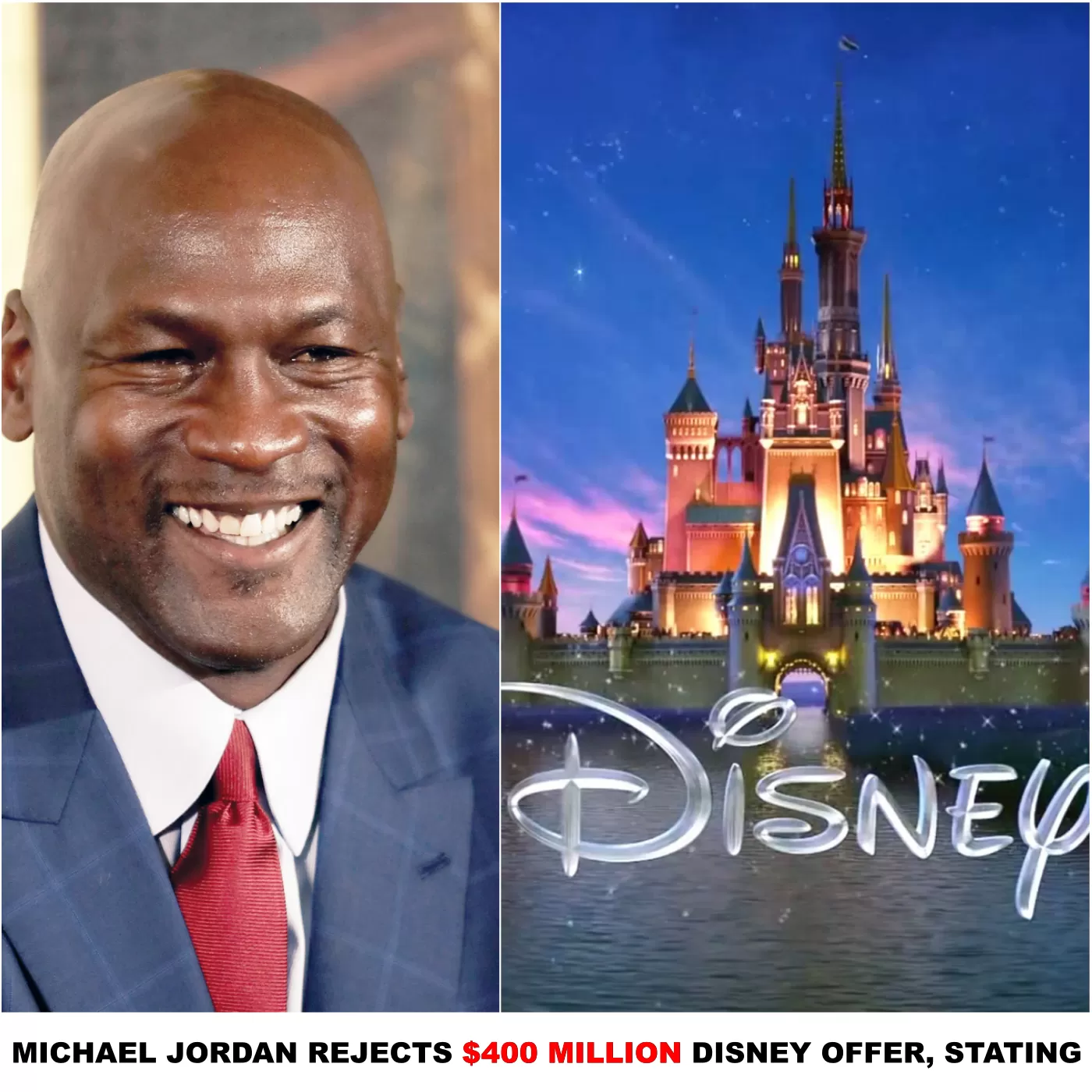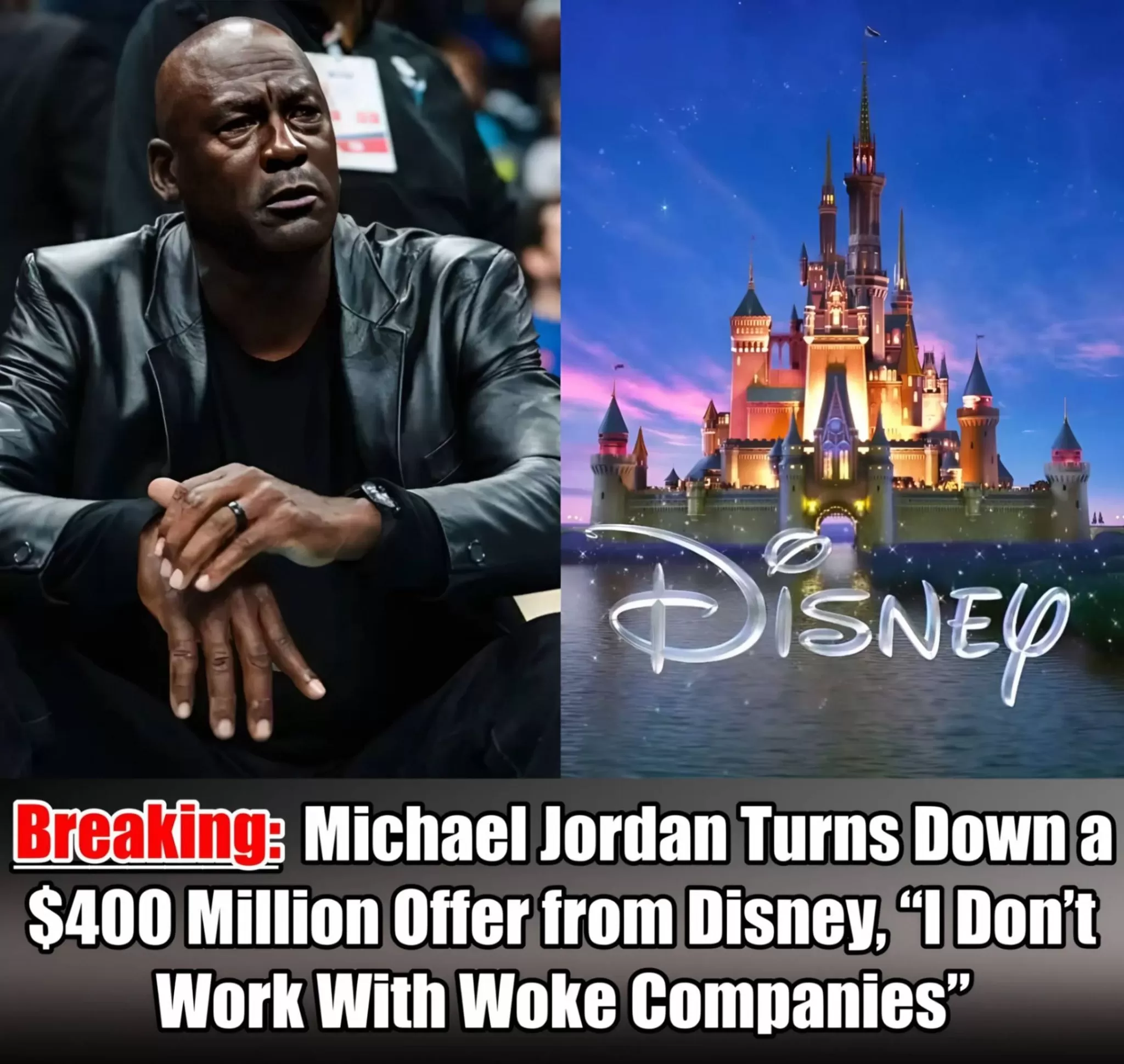Michael Jordan’s recent decision to turn down a $400 million collaboration with Disney, one of the giants in the entertainment industry, has stirred significant debate. While the specifics of the project remain under wraps, its high valuation indicates a venture of considerable scale and potential impact. Disney, renowned for its extensive influence in media and entertainment, has increasingly pursued projects with social and political themes, aligning with what many describe as ‘woke’ culture.

The term ‘woke’ initially symbolized awareness of social injustices, particularly regarding race and equality. However, it has evolved into a contentious term, often used by critics to describe a perceived overemphasis on political correctness and social justice issues. By rejecting the Disney deal, Jordan positioned himself in opposition to what he perceives as the company’s ‘woke’ agenda.
Jordan’s decision to decline Disney’s offer is notable for several reasons:
- A Stand Against Politicization:
It signals a prominent public figure taking a stand against what he sees as excessive politicization of entertainment and business. - Cultural and Political Debate:
It reflects a broader cultural and political debate about the role of companies in societal issues. - Celebrity Engagement with Corporations:
It represents a potential shift in how celebrities and athletes engage with large corporations and their values.
Jordan’s Business Acumen and Personal Beliefs
Michael Jordan is no stranger to the business world. His Air Jordan brand revolutionized sports marketing and remains a dominant force. His ownership of the Charlotte Hornets further cements his status as a savvy businessman. However, his refusal to work with Disney marks a new chapter in his career, where his business decisions are openly influenced by his personal beliefs about cultural and political matters.
Reactions and Implications
Reactions to Jordan’s decision have been mixed. Some praised him for taking a principled stand, applauding him for prioritizing his beliefs over a lucrative deal. Others criticized the move, arguing it was a missed opportunity to effect change from within or an overreaction to the current cultural climate.
Jordan’s stance raises several questions:
- Role of Celebrities in Cultural Debates:
Should celebrities like Jordan use their platform to advocate for social change, or should they remain apolitical, especially in business dealings? - Disney’s Approach:
Disney, like many companies, has incorporated social and political themes into its business model. While praised for raising awareness and fostering inclusivity, it has also faced criticism for potentially alienating certain audience segments or being performative rather than substantive.
Impact on Future Celebrity Endorsements
Jordan’s decision could have far-reaching implications for the future of celebrity endorsements and collaborations. As cultural and political issues become more central in public discourse, public figures may increasingly find themselves having to choose sides or make statements through their business choices.
Michael Jordan’s refusal to work with Disney over its ‘woke’ policies is more than just a business decision; it’s a reflection of our times. It underscores the growing intersection between culture, politics, and business, highlighting the challenges of navigating this complex landscape. Whether one agrees with Jordan’s stance or not, it is a clear indication of the evolving role of public figures in our society.
As the world grapples with various social and political issues, the actions of figures like Michael Jordan remind us of the influential role athletes and celebrities play in shaping public discourse. Their decisions, whether in sports, business, or politics, reflect and influence the cultural zeitgeist, making their actions far more significant than the sum of their parts.
Michael Jordan’s decision to reject a lucrative deal with Disney over ideological differences exemplifies the increasing complexity of the relationship between public figures and cultural politics. In an era where brands and celebrities are often expected to take stands on social issues, Jordan’s stance could inspire others to prioritize personal beliefs over commercial gains. This moment highlights the growing importance of authenticity and integrity in the public eye and the ongoing dialogue about the role of corporations and celebrities in shaping societal values.




